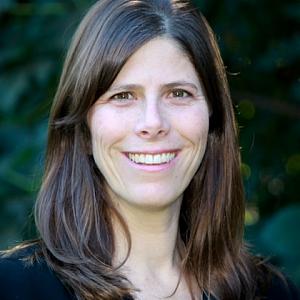
Anna Gorman
Senior Correspondent

Senior Correspondent
I joined Kaiser Health News in October 2013 as a senior correspondent based in Los Angeles. Before that, I was a reporter at the L.A. Times, where I covered healthcare and public health. I had been at the paper since 1999, writing about education, immigration and the Mexican border. I was a 2011 Nieman Fellow and have taught journalism at USC and Harvard.
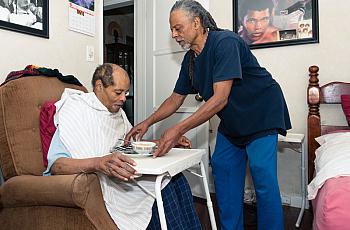
There's little data available on in-home caregiving, which makes reporting on the issue challenging. Unlike nursing homes, in-home care suffers from little oversight. But that's why it's such an important topic to cover. Here are some essential resources and tips to get started.
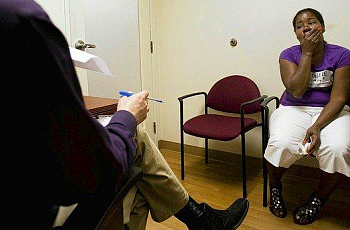
Physicians and therapists traditionally haven't collaborated much when treating the same patient, but the federal healthcare law is spurring a change.
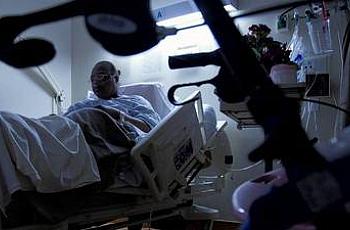
Starting next year, clinics in rural and urban areas will begin seeing millions of newly insured patients, and face higher expectations to keep costs down. Clinics are trying to improve the odds of keeping these patients healthy, but many are too ill or resistant to altering behavior.
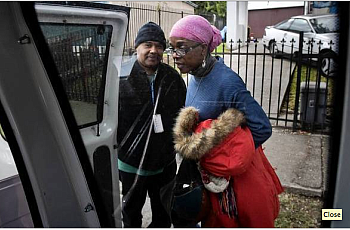
Calvin Woodard and his white van are a lifeline for those who are unable or unwilling to keep important medical appointments. 'He has a rapport sometimes that we can't have,' says a nurse practitioner.
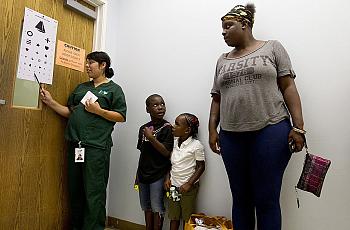
With all the media coverage of health reform, there has been surprisingly little reporting about community health centers. Their story is an important one -- and can be told from anywhere in the U.S. I started with many ideas, but quickly set them aside and let the reporting dictate the stories.
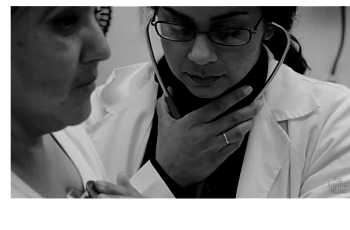
Doctors, nurse practitioners and physician assistants at community clinics work long hours treating multitudes of patients, who often have more than one chronic illness.
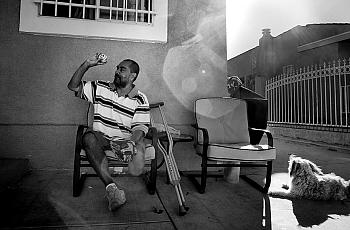
Patients come each month to the To Help Everyone (T.H.E.) Clinic, hoping to finally gain the upper hand on their diabetes, a disease wreaking havoc on their bodies — and their community.
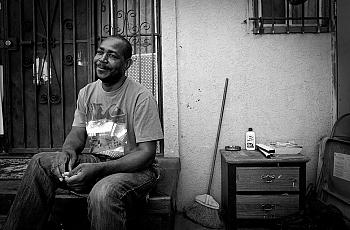
Doctors say it will be virtually impossible to keep low-income patients with significant problems healthy and out of hospitals -- part of new government mandates under health reform and a linchpin for reducing medical spending -- without timely access to a specialist.
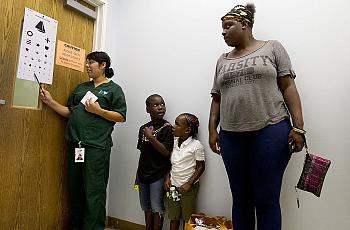
At a South Los Angeles community clinic, the grand expectations of Washington policymakers meet the sobering realities of treating patients who often have poor health habits, limited resources and complex illnesses.
The patients call it simply “the clinic.” It’s where they go to get their kids’ shots for school. It’s where they get check-ups and medication for their high blood pressure. It’s where they get advice on finding jobs or apartments....